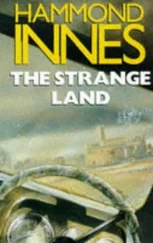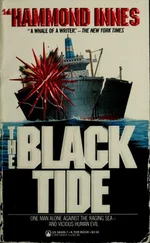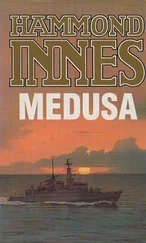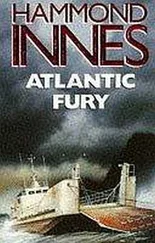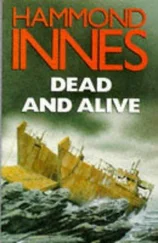Hammond Innes - The Trojan Horse
Здесь есть возможность читать онлайн «Hammond Innes - The Trojan Horse» весь текст электронной книги совершенно бесплатно (целиком полную версию без сокращений). В некоторых случаях можно слушать аудио, скачать через торрент в формате fb2 и присутствует краткое содержание. Жанр: Прочие приключения, на английском языке. Описание произведения, (предисловие) а так же отзывы посетителей доступны на портале библиотеки ЛибКат.
- Название:The Trojan Horse
- Автор:
- Жанр:
- Год:неизвестен
- ISBN:нет данных
- Рейтинг книги:4 / 5. Голосов: 1
-
Избранное:Добавить в избранное
- Отзывы:
-
Ваша оценка:
- 80
- 1
- 2
- 3
- 4
- 5
The Trojan Horse: краткое содержание, описание и аннотация
Предлагаем к чтению аннотацию, описание, краткое содержание или предисловие (зависит от того, что написал сам автор книги «The Trojan Horse»). Если вы не нашли необходимую информацию о книге — напишите в комментариях, мы постараемся отыскать её.
The Trojan Horse — читать онлайн бесплатно полную книгу (весь текст) целиком
Ниже представлен текст книги, разбитый по страницам. Система сохранения места последней прочитанной страницы, позволяет с удобством читать онлайн бесплатно книгу «The Trojan Horse», без необходимости каждый раз заново искать на чём Вы остановились. Поставьте закладку, и сможете в любой момент перейти на страницу, на которой закончили чтение.
Интервал:
Закладка:
He became silent for a moment. The room had been getting dark and the firelight flickered on his face, accentuating the deep lines of his forehead and the stubble on his chin. ‘I hurried from street to street, streets that had been familiar from my boyhood’s days, streets that I had shown proudly to her when I had brought her back to the little house in Grinzingerallee. I questioned countless strangers and every policeman I met, and I resolved to devote less time to my work and more to making her happy, to recapturing the lost spirit of our youth. But my resolutions were useless.’ He sighed. ‘I returned home in the early hours of the morning, and a little after six the Bürgerspital phoned me to say that she had been brought in by the police suffering from exposure. When I reached her she was delirious, and in the babble of her delirium I learned that she had been assaulted by a band of Nazis. They had taunted her with being the wife of a Jew. She — she had compared my work with theirs, and one of them had struck her down for daring to uphold science as a greater art than Jew-baiting. Apparently they had feared to leave her there in the street, for the police had found her lying in the backyard of a big apartment house. I stayed by her bedside and learned how this taunting had become an almost daily occurrence. She had never mentioned it to me. She died that night. Double pneumonia was the cause.’
Again he became silent for a moment. Then he turned to me and said, ‘I’m sorry — you must be wondering when I am coming to the point. But I want you to understand, so that you will believe what I am telling you.’
I said, ‘Please go on,’ It had eased him to tell me the story, and the insight it gave me into the development of the man’s character fascinated me. I pushed my cigarette-case across the desk. He took one automatically. I lit it for him, and he sat there for a moment puffing at it nervously.
‘At that time, it seemed that nothing more could touch me,’ he went on. ‘Yet it was but the beginning.’ He tossed the cigarette into the fire. His voice was quite toneless as he said, ‘I went back to my work with the zest of one who wants to forget. But I was sensitive now to the atmosphere that surrounded me. I was conscious of the growing contempt for my race. I persuaded Freya to stay on in England. She broke the news of Olwyn’s death to her family in Swansea and stayed with them for several weeks, writing enthusiastically of their kindness. Then suddenly the M. V. Industriegesellschaft informed me that I could no longer have the use of their laboratories. I was not altogether sorry. Sneers were no longer veiled. From that moment I received no more royalties from the group.
‘However, it did not matter. I had plenty of money. I bought a little workshop on the outskirts of Vienna and equipped it with all I needed. And there I settled down to continue my experiments. I lived on the premises and saw scarcely anyone. My diesel engine experiments were reaching the point at which I could see the possibility of a tremendous success. Freya came back for a time and worked with me in the shop. She was enthusiastic. But, though she threw herself wholeheartedly into the work, I could tell she was not happy. She was young and not content, like me, to live the life of a recluse. Vienna was no place for a Jew’s daughter and I feared lest she should share her mother’s fate. In January, 1938, I persuaded her to return to London, ostensibly to arouse the interest of one of the big British firms in our experiments. Two months later I stood by the roadside and watched the armoured columns of Nazi Germany roll into Vienna. I knew it was time for me to leave.
‘But I had left it too late. The frontier was closed. It was impossible to get money out. I waited for ten hours in a queue at the British Embassy. It was no good. They could do nothing. The Nazis were combing Vienna for Jews. In the papers I read of the death of those few of my old friends who had not already fled the country. I went back to my workshop and destroyed the engines I had built. Two days later I was in a newly-constructed concentration camp. I was more fortunate than most. Freya got in touch with Fritz Thessen himself. She gave him some idea of the stage reached in our experiments. In those days he was still a power behind the Nazi Party. He was sufficiently interested to obtain my release. I was sent under escort with three others to Germany. But I was very weak with the beginnings of pneumonia. The effort of marching to the station finished me. In the heat of the carriage I collapsed. And because my release papers had Fritz Thessen’s name on them, I was taken to a hospital in Linz, which was the next stop. There my guards left me, as they had to deliver the other prisoners.
‘They came back three days later to find that I had died. Two weeks afterwards, still very weak, I crossed the frontier into Switzerland and went to England.’
‘I don’t quite follow,’ I said.
A ghost of a smile flickered across his lips. ‘I was lucky, that was all. One of the doctors at the Linz hospital was a friend of mine. I had helped him when he and his wife were in a bad way. A Roumanian happened to die that same night. He was about my build and cultivated a beard. The doctor switched us round and bound my head whilst I grew that.’ And he pointed to the dark little tuft of beard that showed in the photograph. ‘I hope they never discovered how I escaped. But for that man I should be working for Germany, and Germany would hold the supremacy in the air.’ He made this pronouncement quite calmly. It came from his lips as indisputable fact. ‘The Nazis are more receptive to a new idea than the English. Fritz Thessen would have recognised the value of my work. In this country, the land of my forefathers, I am not recognised. I am hunted down like a criminal for a crime I did not commit. But I should not have been happy in Germany. There would have been no Freya, and life would not have been easy.’
I stubbed out my cigarette in the ash-tray at my side and looked across at David, who was reclining full length on his bed, his unlit briar clamped between his teeth. ‘Well,’ I said, ‘that is the story he told me. It’s strange enough, but I think it was its strangeness that convinced me more than anything else. It’s hardly the sort of story a man would make up — too much detail.’
‘What about the diesel engine business?’ David asked.
‘Yes,’ I replied, ‘that’s where I wasn’t so sure. I thought his brain might have become unbalanced. His claim was extravagant. Yet his daughter, Freya, believed it and on the strength of it Thessen obtained his release from the concentration camp. And when he arrived in England, Schmidt went straight down to Llewellin’s place in Swansea, The invitation was due to Freya’s conversations with her uncle. Llewellin was apparently enthusiastic. He placed one of his shops at Schmidt’s disposal and did everything possible to help him. Schmidt had retained the Roumanian’s name, by the way, which was Paul Severin. Freya had also interested Calboyds in his work. But Schmidt would not allow either the metal or the plans to be seen by anyone, and for a time the company lost interest.
‘This interest was suddenly revived, however, shortly after inquiries had been made about him by two men, who described themselves as representing the immigration authorities. They approached the elder Mrs Llewellin, and as she disliked Schmidt and had distrusted him ever since her daughter’s death, she told them all she knew. This was in July of last year. By that time Schmidt, working with the money that his broker friend in Vienna had invested in England several years before, had practically completed a new engine. Calboyds approached him and offered to purchase the diesel design and the secret of the new alloy for a very substantial figure. They also offered him a princely salary for his services. This Schmidt refused, having a very shrewd idea, as he put it, of the value of his discoveries and not wishing to be tied to any one firm. Shortly afterwards his rooms were searched. He carried the secret in his head, however, and the searchers got nothing. But by this time he had begun to realise that the secret of his identity had leaked out, and it was then that he discovered about the visit of the immigration people to old Mrs Llewellin. He removed the nearly completed engine to a place of safety. In its place he put an old type engine. Two weeks later this engine disappeared overnight. By this time he had approached the Air Ministry, informing them of the probable performance of the engine. But he got the bird. Llewellin was furious and, knowing someone in the Ministry, he learnt the reason. Calboyds had been approached for an opinion and had described Schmidt as a crank. Llewellin then began a long correspondence with the Air Ministry in an effort to obtain a test of the engine. In the meantime, Schmidt’s finances were exhausted and Llewellin had taken the pair into his own house, and was financing the work.’
Читать дальшеИнтервал:
Закладка:
Похожие книги на «The Trojan Horse»
Представляем Вашему вниманию похожие книги на «The Trojan Horse» списком для выбора. Мы отобрали схожую по названию и смыслу литературу в надежде предоставить читателям больше вариантов отыскать новые, интересные, ещё непрочитанные произведения.
Обсуждение, отзывы о книге «The Trojan Horse» и просто собственные мнения читателей. Оставьте ваши комментарии, напишите, что Вы думаете о произведении, его смысле или главных героях. Укажите что конкретно понравилось, а что нет, и почему Вы так считаете.



